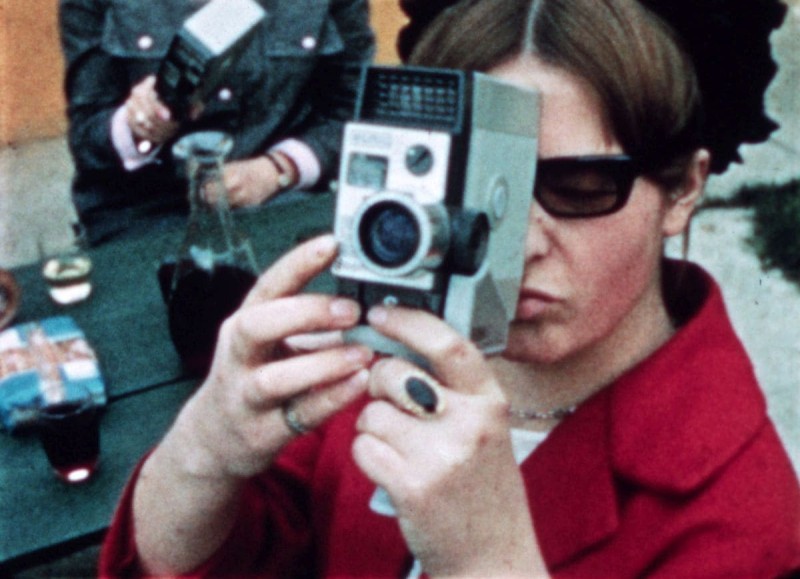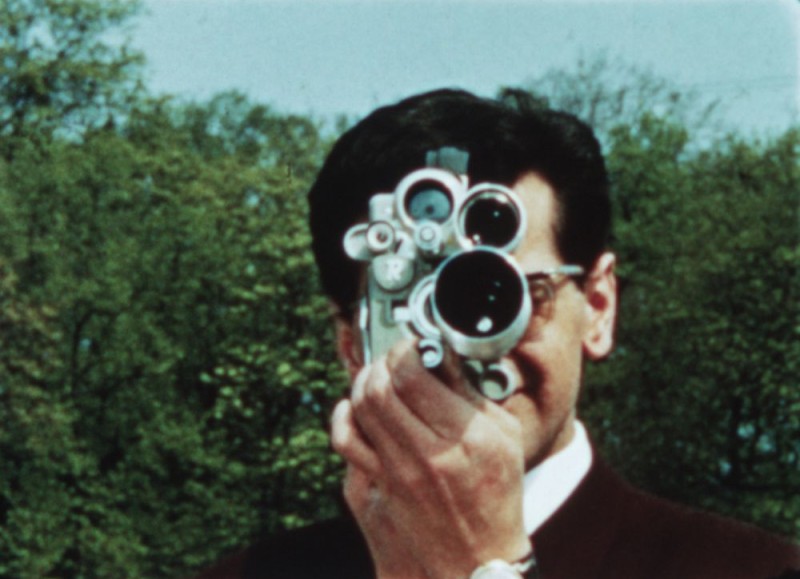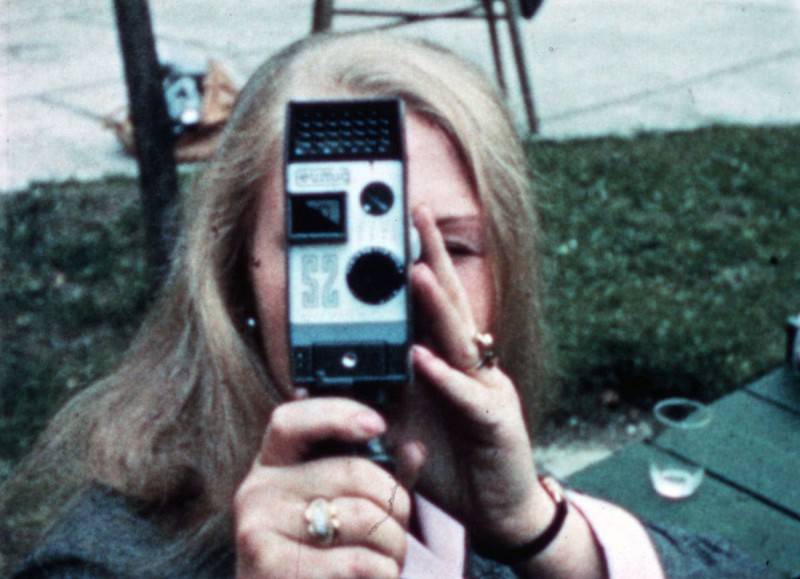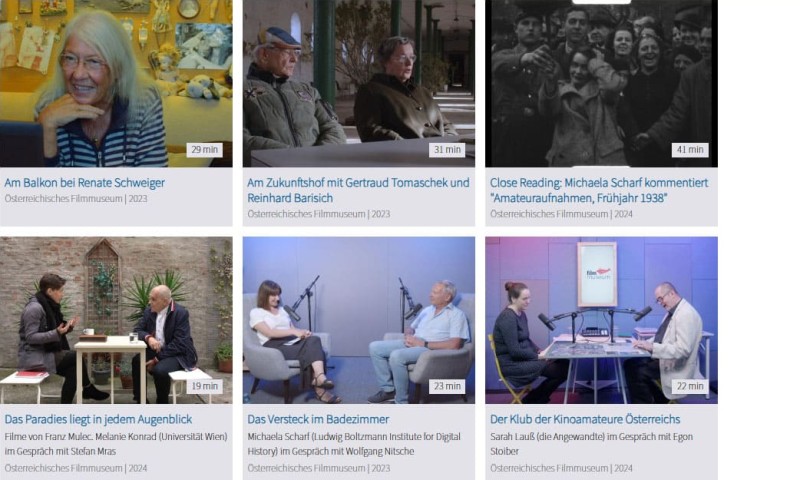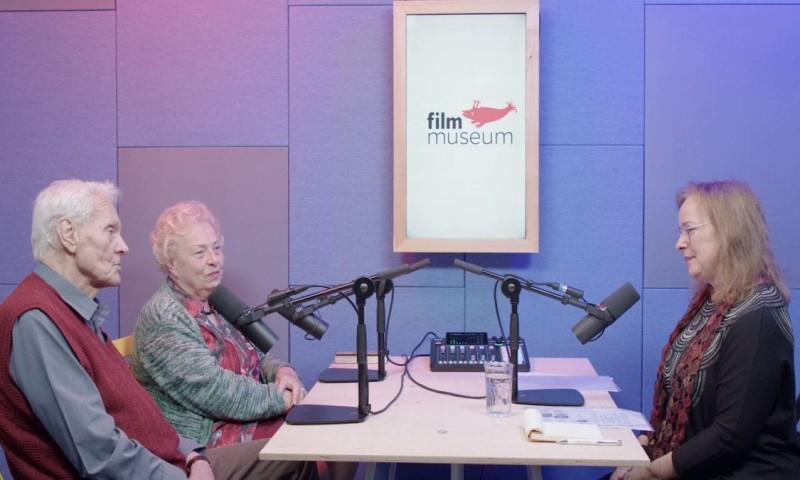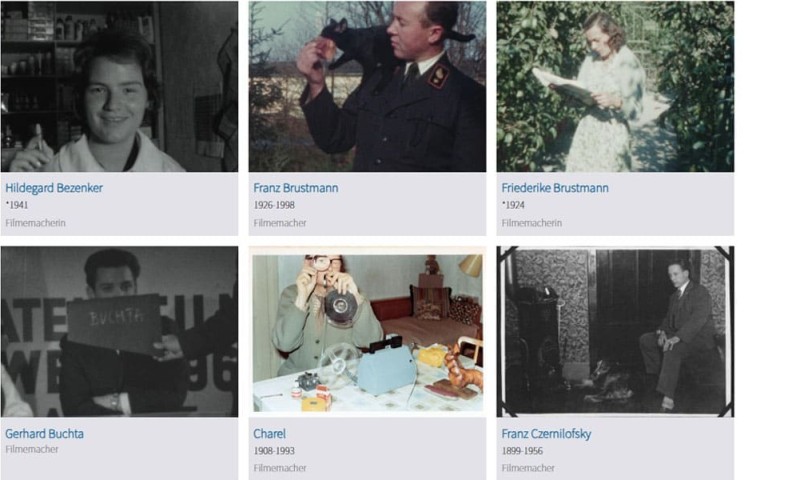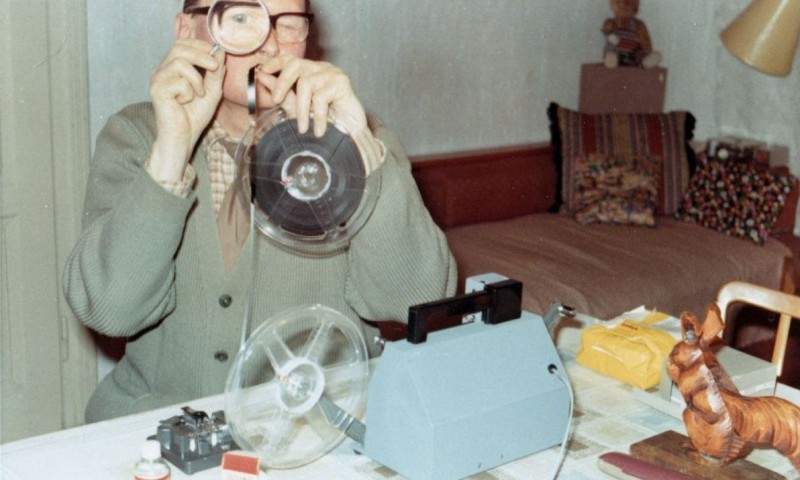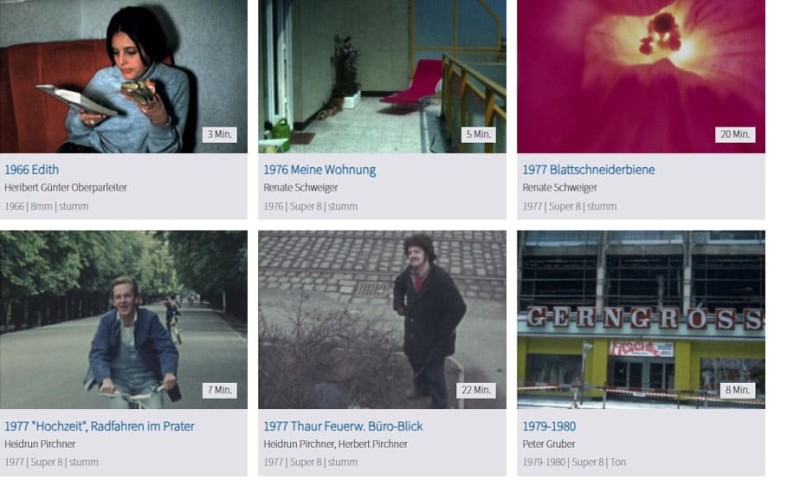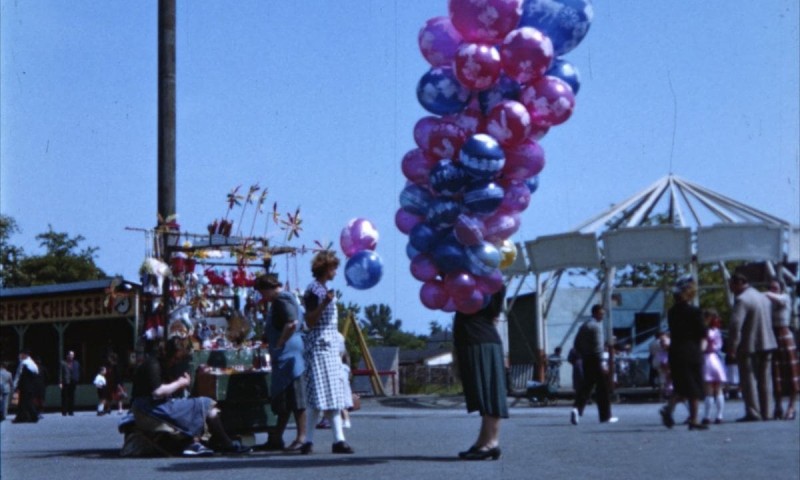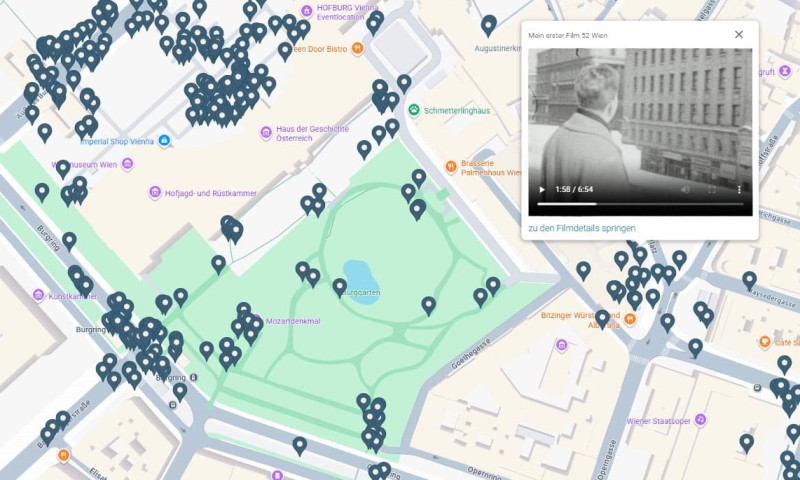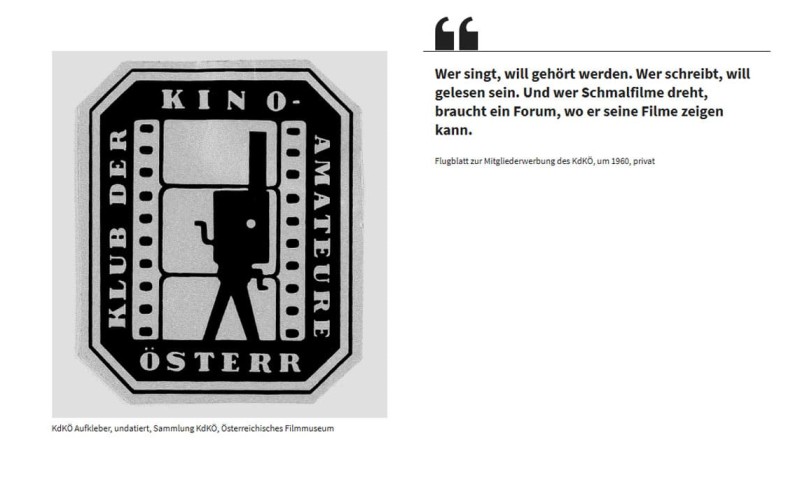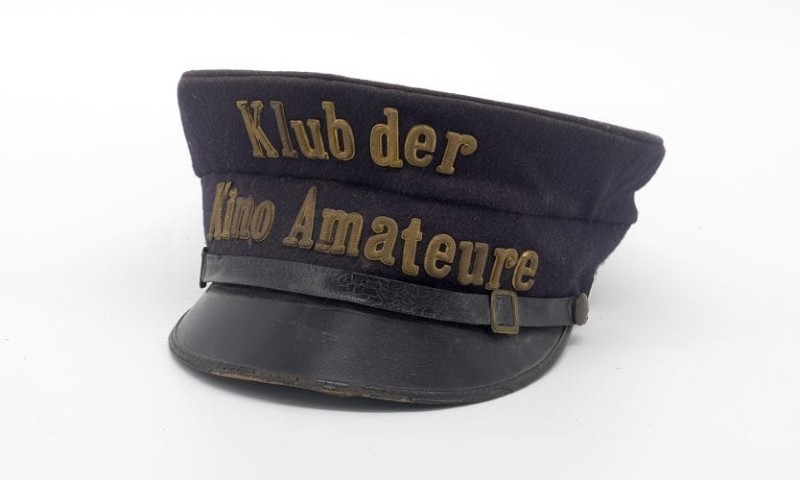The Austrian Film Museum preserves an extensive collection of films shot by private individuals in Vienna between the 1920s and 2000s, capturing their lives and everyday surroundings on analog film. These film documents represent a unique source for contemporary history and everyday culture, although they have only been partially researched in terms of their scientific, historical, and content-related significance. Amateur filmmakers look at the places where they live and move in a different way, offering new perspectives on historical events and providing glimpses into everyday culture in Vienna in the 20th century.
Reel Adventures
How does it change the way we work with amateur films as "living documents" of everyday history when we use technologies that allow films to be tagged and described down to the second and linked to contextual materials such as letters, photographs, oral history interviews, and geodata? What ethical questions arise when working with visual materials that were never intended for public viewing? And how does our approach to contemporary historical documents shift when not only human but also non-human actors (AI) participate in film analysis?
To explore these questions, the Austrian Film Museum, together with partners from the technology sector, tested innovative tools such as automatic analysis, time-based annotation, geo-annotation, and state-of-the-art metadata standards for amateur films. The project sought to establish world-leading best-practice guidelines and technical solutions that provide diverse social groups with access to private film documents.
Our aim with this project was to demonstrate how digital technologies can innovate the indexing, curation, presentation, and mediation of these unique film documents. The Austrian Film Museum was the first museum in the world to make digitized film documents available in such a way that they can be experienced in relation to places, events in contemporary history, technical and social developments, and the life stories of amateur filmmakers. Using high-resolution digitization, automatic analysis by AI, manual annotation, and attractive web interfaces, users can now view films, search for places, people, and motifs, and discover cross-connections without having to visit the museum's depot.
The Results
Project Website
To explore these questions, the Austrian Film Museum, together with partners from the technology sector, tested innovative tools such as automatic analysis, time-based annotation, geo-annotation, and state-of-the-art metadata standards for amateur films. The project sought to establish world-leading best-practice guidelines and technical solutions that provide diverse social groups with access to private film documents.
Our aim with this project was to demonstrate how digital technologies can innovate the indexing, curation, presentation, and mediation of these unique film documents. The Austrian Film Museum was the first museum in the world to make digitized film documents available in such a way that they can be experienced in relation to places, events in contemporary history, technical and social developments, and the life stories of amateur filmmakers. Using high-resolution digitization, automatic analysis by AI, manual annotation, and attractive web interfaces, users can now view films, search for places, people, and motifs, and discover cross-connections without having to visit the museum's depot.
The Results
- Reel Adventures presents selected amateur films from the Austrian Film Museum's collection: around 200 films were annotated based on time, automatically analyzed, and indexed with geodata.
- A diverse collection of 18 film talks with actors and filmmakers sheds light on historical backgrounds, documents cinematic biographies, and provides insights into filmmaking practices.
- The films are supplemented by viewing notes from protagonists and filmmakers, as well as accompanying materials such as documents, photographs, objects, and film equipment.
- The digital exhibition "Guided Tours" focuses on filmmakers, films, and accompanying materials. Interviews, background stories, and thematic connections open up new perspectives on amateur filmmaking and the history of Vienna.
- An attractive front end gives different target groups access to the amateur films about Vienna and allows complex search operations in an intuitive and user-friendly way.
- The project uses a back end based on the open-source architecture of the Visual History of the Holocaust project.
Project Website
Project Timeframe
January 2023 to December 2024
Project Leaders
Austrian Film Museum: Michael Loebenstein, Stefanie Zingl
Project Team
Austrian Film Museum: Florian Haag, Jona Haidenthaler, Anna Högner, Eszter Kondor, Lisa Leitenmüller, Claudio Santancini, Raoul Schmidt, Georg Wasner
Interns: Michela Buttu, Sara Piñeros Cortés, Gerhard Schindler, Laura Wegscheider
Project Partners
Max Recall, Computer Vision Lab (CVL) der Technischen Universität Wien, Ludwig Boltzmann Institute for Digital History, sisigrant – Agentur für Wissens- und Kulturvermittlung
Financial Support
Funding provided by the Vienna Business Agency, an endowment fund of the City of Vienna
Funding provided by the Vienna Business Agency, an endowment fund of the City of Vienna
